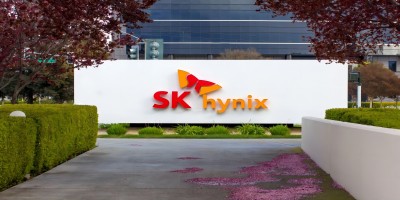In the face of the public opinion craze, a relevant person in charge of ByteDance made a clear response at the first time: ByteDance has no cooperation with Verisilicon on AI chips.
Recently, industry insiders reported that "ByteDance is collaborating with Verisilicon to design an advanced AI computing power chip." This unconfirmed rumor quickly drew high attention from the market, and investors' sentiment was instantly ignited. In the face of the public opinion craze, a relevant person in charge of ByteDance made a clear response at the first time: ByteDance has no cooperation with Verisilicon on AI chips.
Stimulated by this rumor, Verisilicon Holdings (688521.SH) experienced a "crazy roller coaster" performance during trading on August 20th. During the morning call auction stage, the stock price opened more than 8% higher. As the rumors spread, buying power continued to pour in. Around 9:45, the stock price strongly touched the 20% daily limit up, closing at 162.86 yuan, reaching a new high in nearly three months. The trading volume exceeded 1.5 billion yuan within half an hour.
However, with ByteDance's release of its refutation statement, market expectations quickly reversed. At the opening of the afternoon session, VerisilSemiconductor's stock price hit the daily limit up but was pushed open by a huge number of sell orders, causing its share price to fluctuate and decline. By the close of trading on that day, the company was quoted at 147.04 yuan, with the increase narrowing to 15.52%. The total trading volume for the day was 5.46 billion yuan, with a turnover rate of 17.83%, and its total market value was fixed at 77.3 billion yuan. After-hours trading data shows that institutional seats are in a state of a battle between bulls and bears. Three institutions have sold a total of 420 million yuan, while speculative seats such as the Lhasa Branch of East Money Securities have made significant purchases, highlighting market divergence.
In fact, this is not the first time ByteDance has been embroiled in the public opinion maelstrom of rumors about AI chip cooperation. Looking back to the first half of 2023, foreign media reported that ByteDance had reached a cooperation agreement with the US chip giant Broadcom. The two sides planned to jointly develop an AI processor using a 5nm advanced process, and the production process was intended to be entrusted to TSMC for manufacturing. It is reported that the project has entered the substantive design stage, but has not yet advanced to the key verification stage of "tape-out". However, just 24 hours after the rumor was released, ByteDance issued a statement through official channels, denying any chip cooperation with Broadcom.
In September of the same year, in response to reports that "ByteDance and TSMC are cooperating on AI chips", ByteDance once again refuted the rumors and disclosed for the first time the direction of its chip business layout: At present, the research and development work focuses on cost optimization of core businesses such as recommendation algorithms and advertising placement. By developing self-researched chips, computing efficiency is enhanced and the cost of cloud computing power is reduced. Moreover, all chip research and development projects strictly follow domestic and international trade control regulations to ensure compliant operation.
In recent years, ByteDance has continuously increased its strategic investment in the field of artificial intelligence. According to authoritative industry institutions, the company's budget for artificial intelligence infrastructure in 2024 has exceeded 12 billion US dollars, covering multiple dimensions such as data center construction, large model training, and optimization of computing power clusters. Its products such as Douyin and TikTok process over 10 billion video recommendation requests daily, and the demand for AI computing power is growing exponentially. Against this backdrop, the market is full of imagination about ByteDance's self-developed chip plan, and various unconfirmed cooperation rumors have emerged frequently as a result.
As another party involved in this incident, Verisilicon, founded in 2001, is currently a leading semiconductor IP supplier in China. Relying on its independently developed semiconductor IP matrix, it has built a platform-based, one-stop chip customization service system and also provides semiconductor IP licensing services.
The latest financial report data shows that thanks to the growth in IP licensing fee income and mass production business income, the company achieved operating income of approximately 584 million yuan in the second quarter of 2025, with a quarter-on-quarter increase of as high as 49.90%. It is estimated that by the end of the second quarter of 2025, the amount of orders in hand will reach 3.025 billion yuan, an increase of 23.17% compared with the end of the first quarter of 2025, setting a new historical high. Specifically, Verisilicon's IP licensing fee revenue in the second quarter was 187 million yuan, representing a 99.63% increase quarter-on-quarter and a 16.97% increase year-on-year. The revenue from mass production business was 261 million yuan, increasing by 79.01% quarter-on-quarter and 11.65% year-on-year. Meanwhile, the company's profitability has continued to improve, with the loss in a single quarter narrowing significantly compared to the previous quarter.
Disclaimer: The article is sourced from the Internet. In case of any dispute, please contact customer service.



